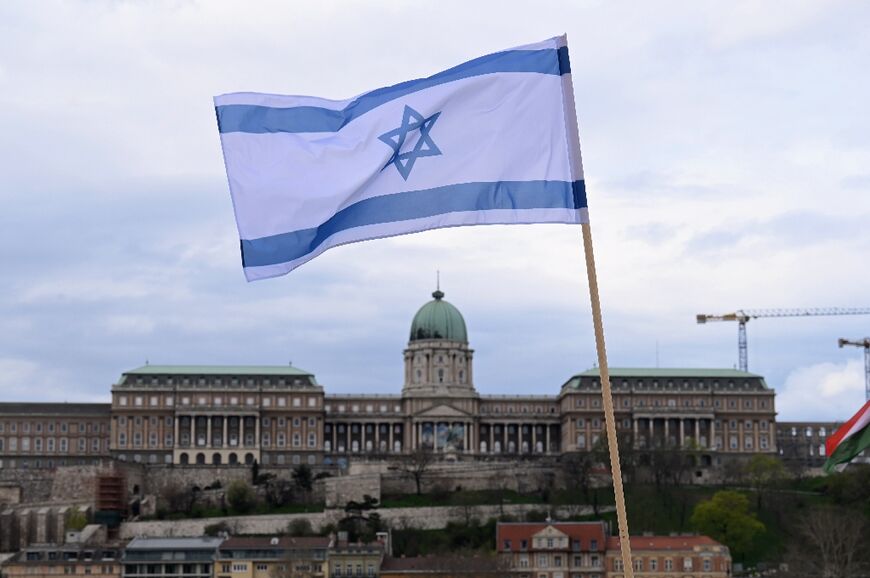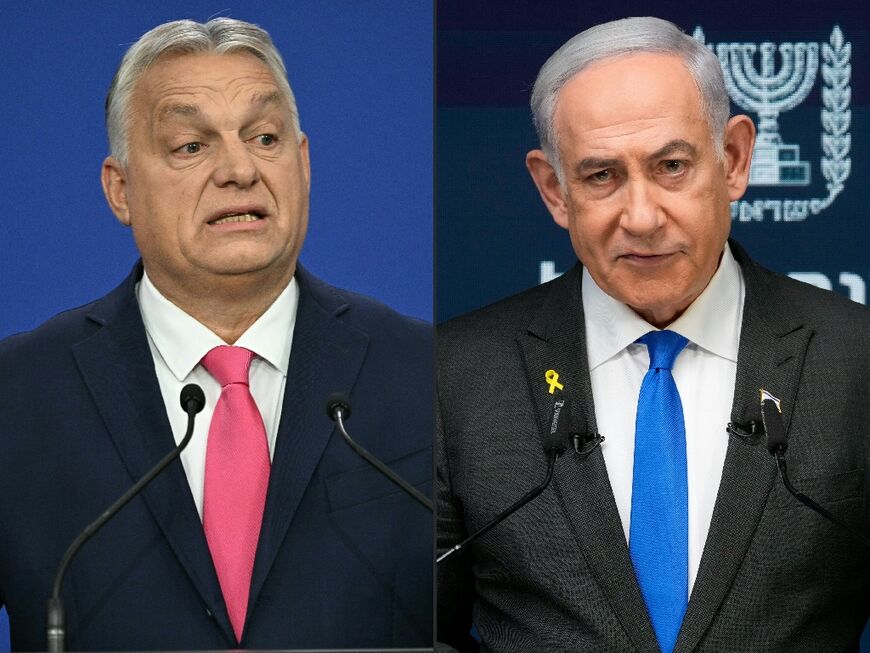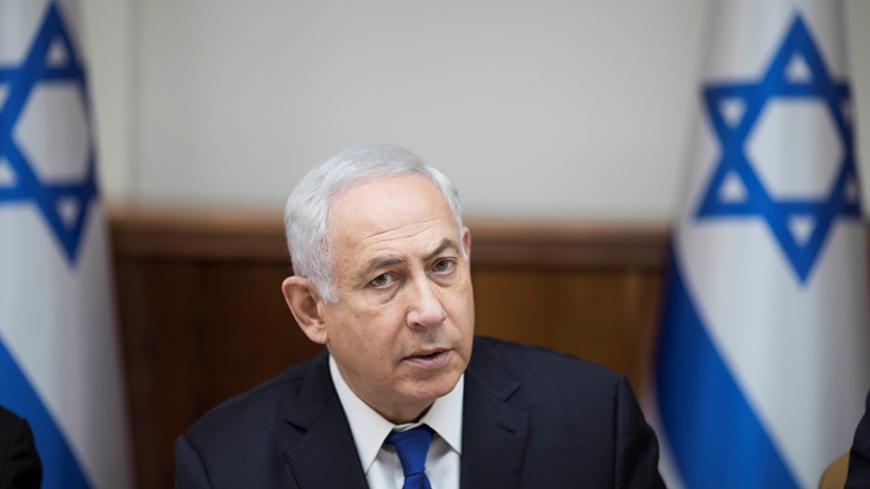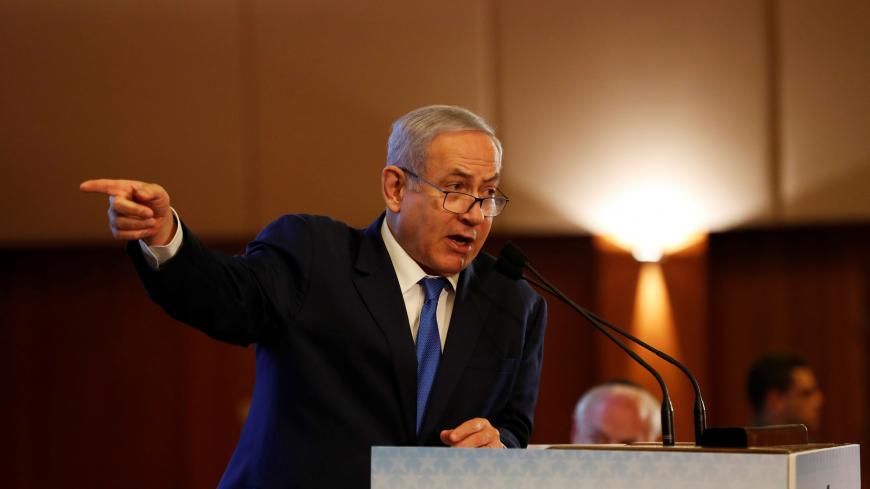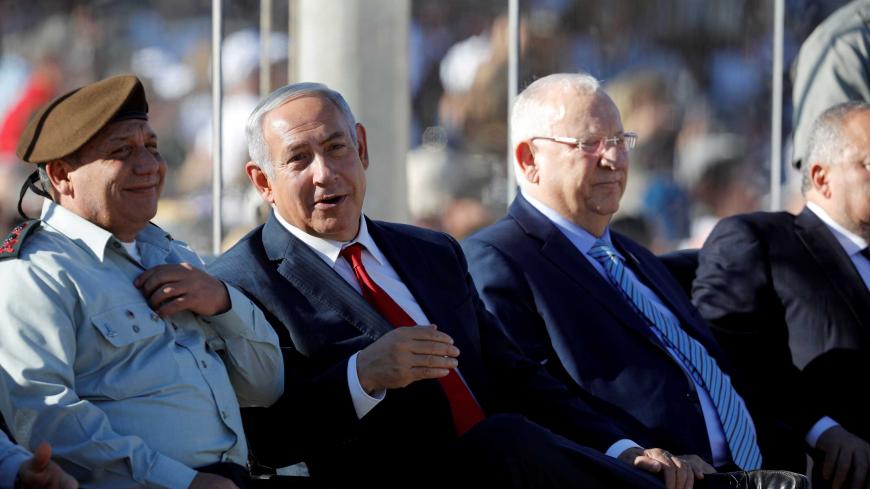Hungary's 'illiberal' Orban, Israel's staunchest friend in the EU
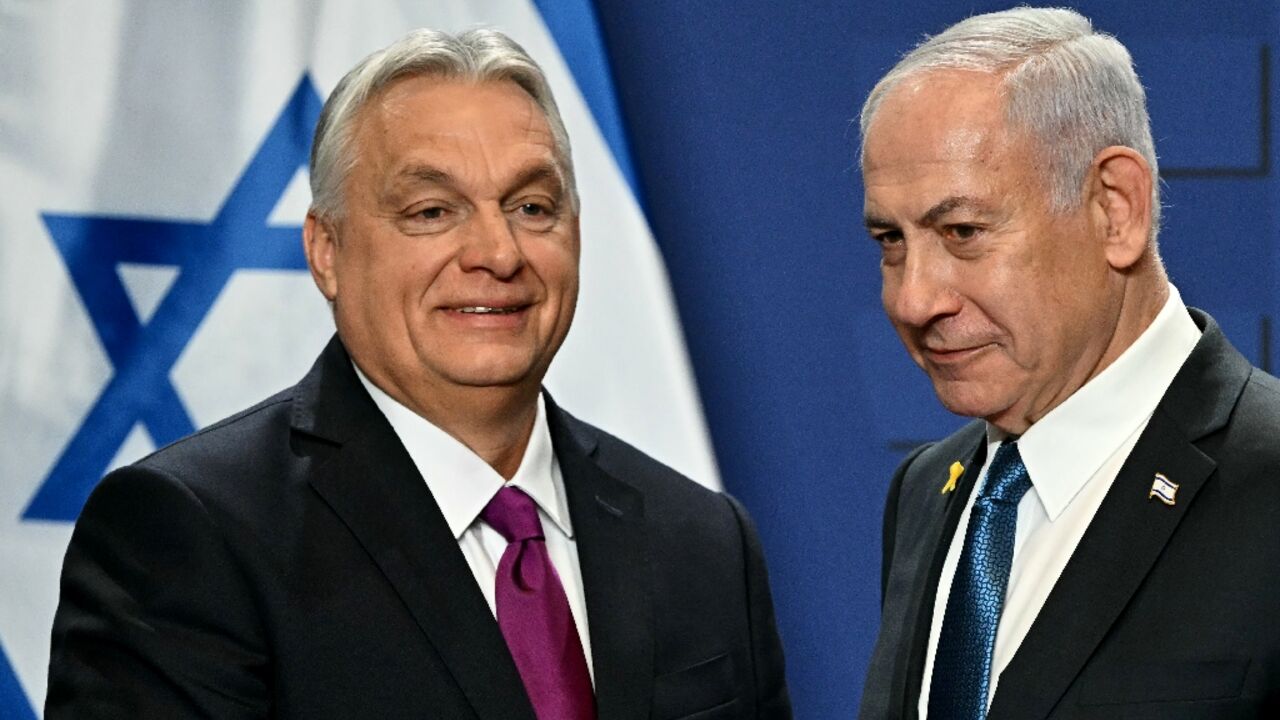
Hungary's long-standing and deep ties with Israel were on full display Thursday, when nationalist Prime Minister Viktor Orban received Israeli premier Benjamin Netanyahu in Budapest.
The relationship with Israel has strengthened since the start of the war in Gaza, which was sparked by the Palestinian militant group Hamas's attack on October 7, 2023.
Orban, who has touted Hungary as "the safest country in Europe" for Jews, became the first leader to extend an invitation to Netanyahu, defying an International Criminal Court (ICC) arrest warrant issued against the Israeli leader.
And he went a step further on Thursday, announcing that Hungary would quit the ICC, denouncing it as a "political court".
"This partnership is unparallelled. May it grow even further, may it grow even stronger," the Israeli leader told reporters, exchanging firm handshakes with his "friend Viktor".
The Central European country is "one of Israel's closest allies and supporters in the EU," said researcher Bulcsu Hunyadi of the Political Capital think tank.
"This alliance has gained particular significance," with Hungary voicing unwavering support for Israel's "war of self-defence," Hunyadi told AFP.
- 'Deep friendship' -
In recent months, Hungary has also hosted several matches of Israel's national football team and clubs, as anti-Israeli sentiment and tensions sparked by Israeli actions in the Gaza war have surged in Europe.
On Thursday, Netanyahu hailed the countries' cooperation on sports as "a sign of a deep friendship, a deep alliance that has evolved".
Orban's government has even pointed to anti-Semitic acts in Western countries to justify its tough anti-migration stance, and has boasted that in Hungary, pro-Palestinian demonstrations are banned.
Netanyahu last made a trip to Hungary in 2017, the first visit in 30 years by an Israeli premier.
The two right-wingers -- who share a common ally in US President Donald Trump and embrace his hardline policies -- also have a close personal friendship, with Hungarian media once describing them as "spiritual brothers".
As fellow "populist" leaders, Netanyahu and Orban share their pursuit of advancing an "illiberal" brand of democracy aimed at criticising the values of Western liberal democracies while clamping down on the opposition, said analyst Hunyadi.
Netanyahu said Thursday that both countries were united in their "battle for the future of our Judeo-Christian civilization" amid attacks from "radical Islam".
- Accusations of anti-Semitism -
By stressing their shared "common patriotic foundation", accusations levelled against Orban that he has been fanning anti-Jewish sentiment at home were pushed to the background.
When Orban's government ran poster campaigns vilifying Hungary-born financier George Soros, who is Jewish, and his son Alex in 2017, the World Jewish Congress (WJC) denounced its anti-Semitic overtones.
Orban also came under fire for praising wartime leader and Hitler ally Miklos Horthy -- an autocrat who ruled Hungary from 1920 to 1944 and who passed anti-Jewish laws and oversaw the deportations of several hundred thousand Hungarian Jews to Nazi death camps -- as an "exceptional statesman".
Dismissing criticism, Orban has vowed "zero tolerance" for anti-Semitism in Hungary, which has a Jewish community of an estimated 100,000.
The leader has emphasised the government's investments into renovating and maintaining synagogues and Jewish cemeteries.
Netanyahu said Hungary was treating the Jewish community "in an exemplary fashion".
While the visit offers an opportunity to strengthen ties, it is also aimed at framing Orban's international posture ahead of 2026 elections.
Increasingly under threat from Peter Magyar, who has become the main challenger to Orban's 15-year rule, the nationalist premier seeks to regain "control of the media narrative" during Netanyahu's visit, said Zoltan Ranschburg of the Republikon Institute.
"In this incessant battle of communication, Orban is doing everything he can to divert attention" from the problems Hungarians face in daily life, such as soaring inflation and the deterioration of the health system, he added.
bur-mg-anb-kym/yad
